Decomposition
Decomposition is the process by which organic materials are broken down into simpler forms of matter. This natural process is essential for recycling nutrients back into the environment. Decomposition occurs in several stages and is carried out by various decomposers such as bacteria, fungi, and detritivores.
Stages of Decomposition
- Fragmentation: Large organic matter is physically broken down into smaller pieces by detritivores like earthworms and insects.
- Chemical Decomposition: Chemical and biological processes break down the organic matter into simpler compounds.
- Humification: The remaining organic matter is transformed into humus, a stable form of organic matter that enriches soil.
- Mineralization: Microorganisms convert organic matter into inorganic minerals such as carbon dioxide, water, and nutrients.
Factors Affecting Decomposition
Several factors influence the rate of decomposition:
- Temperature: Warmer temperatures speed up decomposition, while colder temperatures slow it down.
- Moisture: Decomposition occurs more rapidly in moist environments compared to dry ones.
- Oxygen: Aerobic decomposition, which requires oxygen, occurs faster than anaerobic decomposition, which occurs in the absence of oxygen.
- Organic Matter Quality: The chemical composition of organic matter affects how quickly it decomposes, with materials high in lignin and cellulose taking longer to break down.
Study Guide
Here are some key points to remember about decomposition:
- Define decomposition and explain its importance in nutrient cycling.
- Describe the stages of decomposition and the role of various decomposers in each stage.
- Identify and explain the factors that influence the rate of decomposition.
- Discuss the environmental implications of decomposition, including its impact on soil fertility and carbon cycling.
Understanding decomposition is crucial for comprehending the interconnectedness of ecosystems and the recycling of essential nutrients. It also highlights the importance of preserving the balance of natural processes in the environment.
.◂Science Worksheets and Study Guides Fifth Grade. Flowers and seeds
Study Guide Flowers and seeds
Flowers and seeds  Activity Lesson
Activity Lesson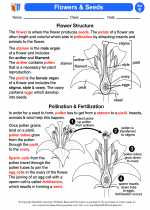 Flowers & Seeds
Flowers & Seeds  Worksheet/Answer key
Worksheet/Answer key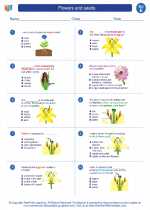 Flowers and seeds
Flowers and seeds  Worksheet/Answer key
Worksheet/Answer key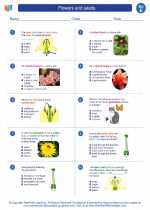 Flowers and seeds
Flowers and seeds  Worksheet/Answer key
Worksheet/Answer key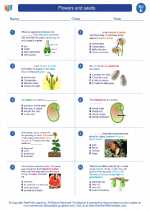 Flowers and seeds
Flowers and seeds  Worksheet/Answer key
Worksheet/Answer key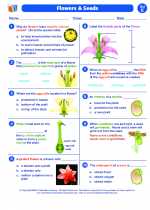 Flowers and seeds
Flowers and seeds  Vocabulary/Answer key
Vocabulary/Answer key Flowers and seeds
Flowers and seeds  Vocabulary/Answer key
Vocabulary/Answer key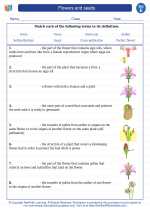 Flowers and seeds
Flowers and seeds 

 Activity Lesson
Activity Lesson
 Worksheet/Answer key
Worksheet/Answer key
 Worksheet/Answer key
Worksheet/Answer key
 Worksheet/Answer key
Worksheet/Answer key
 Worksheet/Answer key
Worksheet/Answer key
 Vocabulary/Answer key
Vocabulary/Answer key
 Vocabulary/Answer key
Vocabulary/Answer key

The resources above cover the following skills:
Life Science
All organisms have structures and systems with separate functions. Students can:
Develop and communicate an evidence-based scientific explanation of the role of different organs or structures that are important for an organism's survival - in both plants and animals